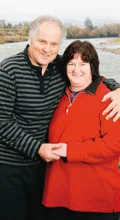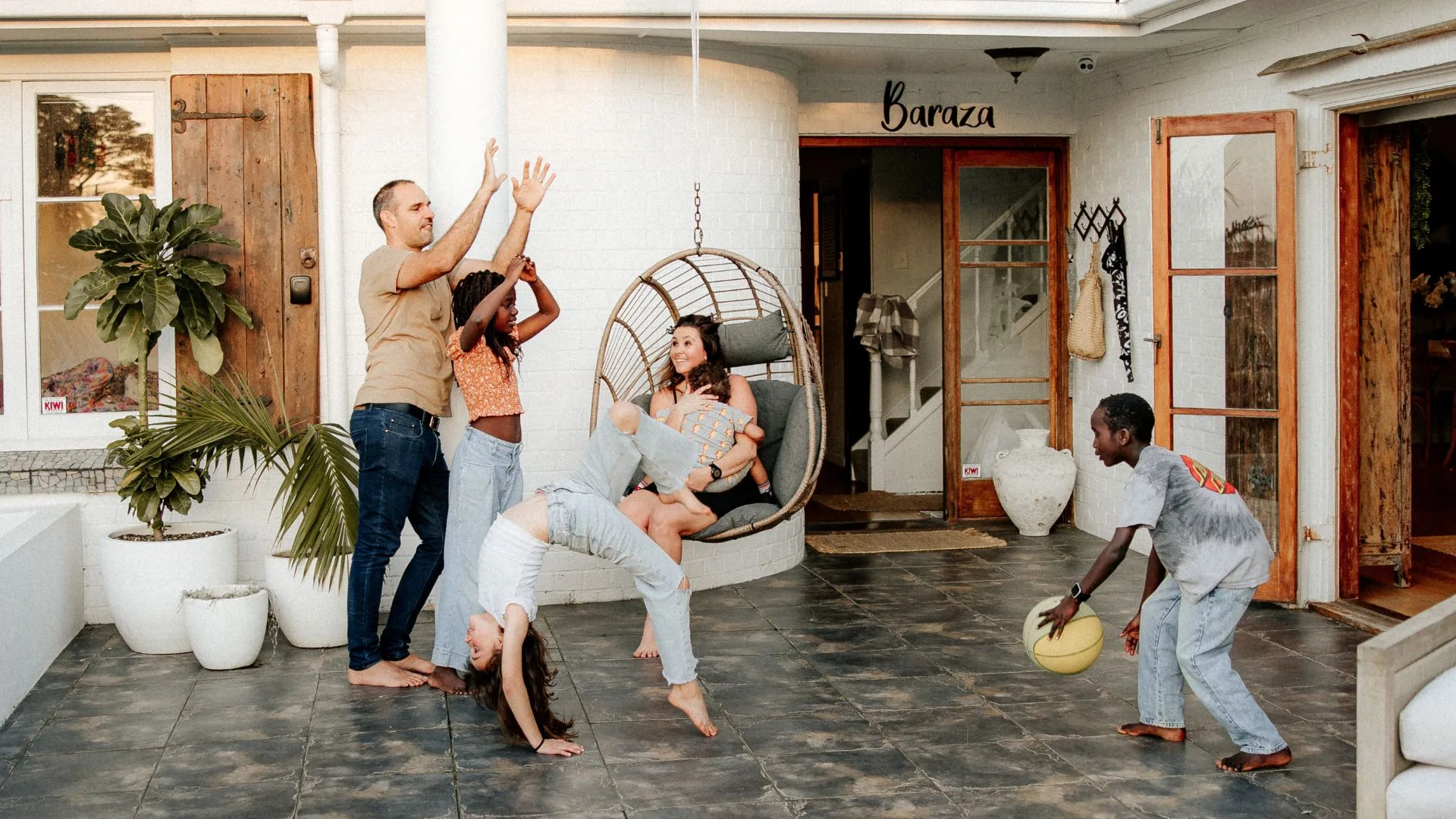Devoted wife Catherine Crutchley knows in her heart that her husband Ian will stand by her in sickness and in health even though he attempted to murder his cancer-stricken mother.
While Ian went through a gruelling, very public trial for the offence, Catherine was his quiet but constant support, shying away from the cameras and journalists who flocked to Hamilton High Court. And now that he’s been sentenced to six months of community detention and 150 hours of community work, Catherine (45) still believes in him wholeheartedly, and makes sure Ian, who has his own plumbing business, meets his daily 9pm curfew.
“In the beginning I thought he was going to jail,” says the quiet mum-of-four. “Ian had a lot on his mind and he coped extremely well.”
It was a gruelling case that had New Zealanders arguing the euthanasia issue. The court heard that Ian gave his mother Elsie (77) a dose of morphine as she lay in excruciating pain in a Taumarunui rest home, crying, “Help me, help me!”
In a stunning twist, the jury, just moments after convicting Ian, asked the judge for leniency with his sentencing. Newspapers and television captured Ian’s many emotions during the stressful period, from the anxiety shown on his face throughout the trial and conviction, to the celebratory two-thumbs-up salute after he discovered he had escaped a jail term.
Catherine, who helped care for Elsie during her illness, says she always believed Ian did the right thing. “His mum had had enough,” she says. “When someone is so sick you have to be there to understand the full extent of it.”
Catherine says she was extremely close to Elsie and, at first, didn’t know what part her husband had played in her death.
“I had this feeling that something terrible was up,” says Catherine when she heard her husband was at the police station for questioning after Elsie’s death. “I didn’t know the full story until Ian returned home later that night but I knew that it was going to be a very testing time for our family.”
This is not the first time Catherine has had to support Ian during a traumatic ordeal. Three years ago, Ian’s father also lost his battle with cancer, but unlike Elsie, he was treated in a hospital and had the adequate palliative care.
The Taumarunui couple say that if the same care had been available in rural towns such as theirs, Elsie would have been looked after properly and Ian would not have felt motivated to end her suffering.
“When someone is dying and in their last days, they should be cared for and pampered,” Ian says. “When my father was terminally ill, he had a doctor, medication and everything.”
But Ian paints a different picture of the resources available to his mother, who remained at the rest home, rather than going to hospital. “It was a slow and gradual thing,” he explains. “She started losing strength and she was in so much pain. Enough was bloody enough.”
Ian’s decision to administer his mother’s medication and his attempted murder conviction brought the issue of voluntary euthanasia into the spotlight. “When they charged me with attempted murder, I thought it was a joke. It didn’t fit my crime. All I did wrong was muck around with someone’s medication,” he says.
“But the only way you can get away from that ‘murder’ word is saying that it was euthanasia. I’ve got strong feelings about that, and I’m not in that movement,” he says.
If euthanasia ever became legal in this country, Ian believes it would need to be heavily policed.
“You don’t put anyone out of their misery unless they are at the final stage,” Ian says. And he says that if Catherine or his children fell terminally ill, he knows that he would act differently. “I wouldn’t be doing the same sort of carry-on with anybody else in my family. It’s such a big hassle,” he says. “I would make sure they were put in the right place and given the proper care.”
Catherine is looking forward to the end of Ian’s six-month sentence so she can put the past 17 months since Elsie’s death behind her. As she looks lovingly at her husband, she tells him the first thing they will do when his sentence is over “We’ve all been worn out. We’re going on a holiday.”











